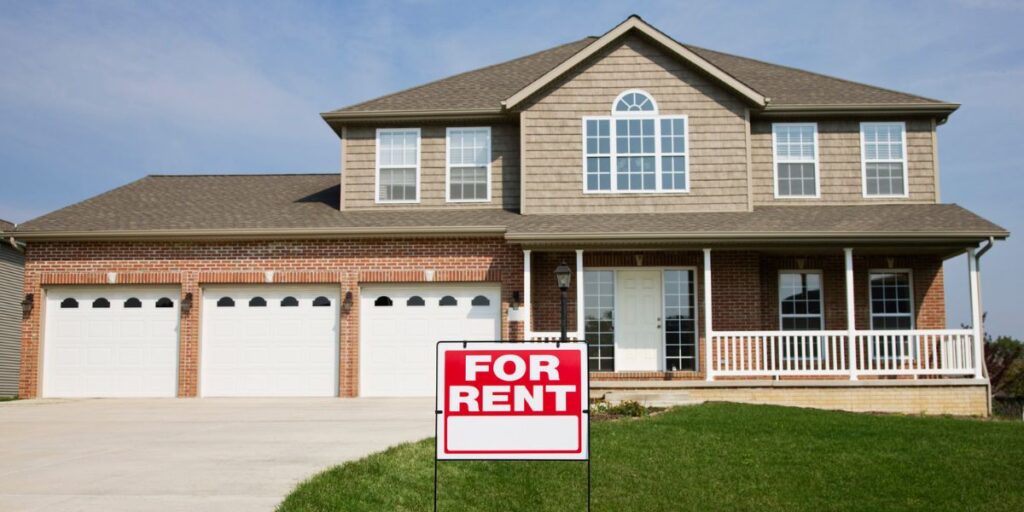Renting a house is one of the most common ways to find a comfortable living space without the long-term commitment of buying property. It’s an option that offers flexibility, privacy, and often more space than apartments. Whether you’re relocating for work, looking for a bigger home for your family, or prefer the freedom of renting, finding the right house for rent can make a huge difference in your lifestyle.
In this guide, you will learn what houses for rent are, the renting process, advantages and disadvantages, tips for choosing the right one, and important factors to consider before signing an agreement.
What Does “Houses for Rent” Mean?
Houses for rent are residential properties available for lease from the owner to a tenant for a set period, usually on a monthly or yearly basis. Instead of purchasing the property, the tenant pays rent to live in the home.
These houses come in different types and sizes, such as:
- Detached dwellings – Standalone homes with private space.
- Townhouses – Multi-story houses connected to other similar units.
- Villas – Spacious homes often with gardens or pools.
- Small cottages – Cozy homes perfect for individuals or couples.
Why Renting a House Can Be a Good Choice
Renting a house has several advantages:
- Lower Upfront Cost: No need for a big down payment like when buying.
- Flexibility: Easier to move to a new location after the lease ends.
- Less Maintenance Responsibility: Landlords often handle major repairs.
- More Space: Houses usually offer larger living areas and outdoor space compared to apartments.
- Access to Prime Locations: You can live in desirable neighborhoods without having to buy property there.
How the House Renting Process Works
Renting a house may sound simple, but there are important steps to follow to avoid problems:
Search for Available Houses
Look online, in newspapers, or through property agents.
Inspect the Property
Visit the house to check its size, layout, and condition.
Discuss Rent and Terms
Negotiate rent, security deposit, and lease duration with the owner.
Sign a Rental Agreement
This legal document explains the rights and duties of both tenant and landlord.
Pay Security Deposit and First Rent
Most landlords require one or two months’ rent in advance.
Move In
Once payment and paperwork are complete, you can start living in your new home.
Things to Check Before Renting a House
Before you sign the agreement, make sure to check:
- Location – Near work, schools, public transport, or shops.
- Condition of the House – Look for damage, leaks, or electrical issues.
- Facilities – Ensure water supply, electricity, and internet availability.
- Lease Rules – Understand policies about pets, guests, or renovations.
- Safety: Check neighborhood security and door/window locks.
Advantages of Houses for Rent
- Privacy – No shared walls with noisy neighbors above or below.
- Outdoor Areas – Many houses have gardens, patios, or backyards.
- Spacious Living – More rooms and open areas for family activities.
- Storage Space: Houses often come with extra storage options.
Drawbacks of Houses for Rent
- Rent May Increase – Prices can go up when renewing the lease.
- No Ownership – Rent payments don’t build equity like a mortgage.
- Maintenance Delays – Some landlords may take time to handle repairs.
- Lease Restrictions: Rules may limit changes or renovations.
Tips for Finding the Perfect House for Rent
- Set a Budget – Include rent, utilities, and maintenance costs.
- Choose the Right Location – Consider travel time to work or school.
- List Your Must-Haves – Number of bedrooms, parking space, or garden.
- Compare Options – Check multiple listings before deciding.
- Ask Questions – About repairs, rules, and included facilities.
Negotiating a House Rental
Negotiating can help you save money or get better terms:
- Offer a longer lease for a lower monthly rent.
- Ask if utilities or maintenance can be included in rent.
- Request small improvements before moving in.
Responsibilities of Tenants and Landlords
Tenant’s Responsibilities:
- Pay rent on time.
- Keep the property clean and in good condition.
- Follow the lease rules.
Landlord’s Responsibilities:
- Maintain the property and handle repairs.
- Provide basic facilities like water and electricity.
- Respect the tenant’s privacy.
The Future of House Rentals
The demand for houses for rent is growing due to:
- More people are moving for work or study.
- Rising property prices make buying harder.
- Increased interest in short-term rentals for flexibility.
Technology is also changing the rental process, with virtual tours and online agreements making it easier to find and rent a home without visiting in person.
To read more blog: Lead Generation for Real Estate That Works Without Paid Ads
Last Words
Houses for rent offer a practical and flexible living option for many people. They provide space, privacy, and the chance to live in great locations without the financial burden of buying property. By understanding the renting process, checking important factors, and choosing carefully, you can find a house that feels like home.
Whether you are a single professional, a couple, or a family, renting a house can be the perfect choice for comfort and convenience.

